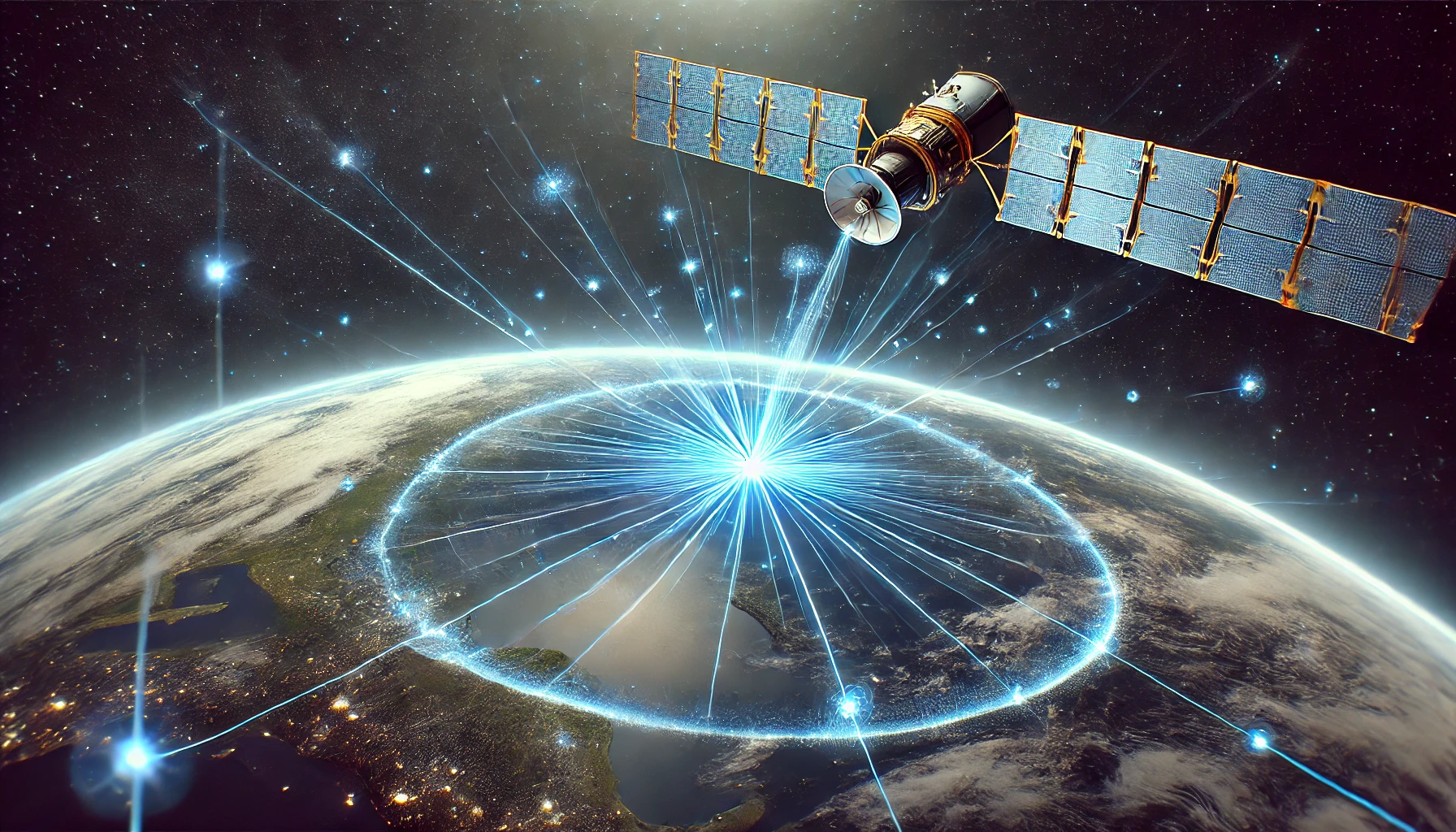Quantum Leap Forward: How Long-Distance Quantum Teleportation Over 1,000 Kilometers is Revolutionizing Global Communications and Ushering in the Quantum Internet Era

Wait, We Can Teleport Now?
If you're picturing Captain Kirk beaming up to the USS Enterprise, slow down just a tad. While we're not teleporting humans (yet), scientists have achieved quantum teleportation over distances exceeding 1,000 kilometers using satellite links. That's right—data zipping across the globe instantaneously, making your fiber optic cable look like a tortoise racing a hare on jet fuel. According to Google Trends, interest in quantum computing has spiked by 65% over the past year, and it's no wonder why.
Quantum Entanglement: Nature's Worst Kept Secret
So how does this quantum magic trick work? It all boils down to quantum entanglement, a phenomenon Einstein famously dubbed spooky action at a distance. When two particles become entangled, the state of one instantaneously influences the state of the other, no matter how far apart they are. This isn't just theoretical physics mumbo-jumbo; it's been demonstrated repeatedly in laboratories worldwide. A 2023 study published in Nature Photonics revealed that researchers utilized entangled photons to transmit data over vast distances via satellite, effectively teleporting the information. This process relies on the principles of quantum mechanics, where the act of measurement collapses the quantum state, allowing for the transfer of information without traversing the intervening space.
Breaking the 1,000 Kilometer Barrier: A Quantum Feat
Previously, quantum teleportation was limited to relatively short distances due to signal degradation in fiber optics caused by factors like photon loss and decoherence. However, by leveraging satellites orbiting above the Earth's atmosphere, scientists bypassed these terrestrial limitations. The Micius satellite, launched by China in 2016, has been instrumental in these experiments. In a landmark experiment detailed in Science Advances, the team achieved quantum key distribution (QKD) between ground stations separated by 1,200 kilometers, with an average key generation rate of 0.12 bits per second. Sure, that's slower than your 5G network, but considering it's unhackable due to the laws of quantum mechanics, it's a pretty big deal.
Why Should We Care? The Quantum Internet Cometh
You might be thinking, Great, more physics stuff I don't understand. But here's the kicker: this breakthrough paves the way for a quantum internet. Imagine a network that's faster, more secure, and, dare we say, cooler than anything we've seen before. According to a report by the Quantum Economic Development Consortium, the quantum computing market is projected to reach $65 billion by 2030. With cyber threats on the rise—over 4,000 ransomware attacks per day were reported in 2022 according to Cybersecurity Ventures—the need for secure communication has never been greater. Quantum networks could provide virtually unhackable communication channels. In an era where data breaches cost companies an average of $4.24 million per incident as per IBM's 2023 Cost of a Data Breach Report, the stakes are high.
Challenges Ahead: It's Not All Quantum Rainbows
Before you toss your smartphone into the nearest black hole, there are hurdles to overcome. Quantum systems are notoriously delicate. Environmental factors like temperature fluctuations, electromagnetic radiation, and even cosmic rays can disrupt entanglement. Moreover, scaling this technology for everyday use requires significant advancements in quantum memory, error correction, and standardization protocols. The infrastructure needed to support a global quantum network is immense and will require international collaboration. Researchers are optimistic but cautious; as one scientist quipped at the 2023 Quantum Tech Congress, We're trying to build a sandcastle with quantum sand—it keeps slipping through our fingers.
The Final Frontier: What's Next in Quantum Teleportation?
So, what's on the horizon? Governments and private companies are investing heavily in quantum research. The U.S. Department of Energy announced a plan in 2023 to develop a national quantum internet, aiming to connect quantum computers across the country. Europe isn't far behind, with the European Quantum Communication Infrastructure initiative planning to deploy a quantum communication network spanning the EU by 2027. Companies like IBM, Google, and startups like Rigetti Computing are racing to build more stable and scalable quantum processors. The convergence of these efforts could lead to breakthroughs in fields like cryptography, material science, climate modeling, and even drug discovery. Quantum algorithms could solve complex problems in minutes that would take classical computers millennia to crack.
Quantum Ethics: A New Frontier for AI and Security
As we hurtle towards a quantum future, ethical considerations become paramount. The power to process vast amounts of data and break traditional encryption methods poses significant risks. AI algorithms running on quantum computers could potentially outpace human decision-making, leading to concerns about control and accountability. Cybersecurity experts are advocating for quantum-safe encryption methods to preemptively protect data. According to a 2023 Gartner report, by 2025, 20% of organizations will budget for quantum cryptography projects, up from less than 1% today.
Conclusion: Ready to Beam Up Your Thoughts?
Quantum teleportation over 1,000 kilometers isn't just a milestone; it's a giant leap for mankind's communication capabilities. While we may not be teleporting ourselves anytime soon, the implications for secure, instantaneous data transfer are immense. The quantum internet could redefine how we interact with technology, each other, and the universe itself. So, what do you think? Are we on the brink of a quantum revolution, or is it just a lot of entangled hype? How do you envision the quantum leap affecting your life in the next decade? Share your thoughts—before they're teleported away!



